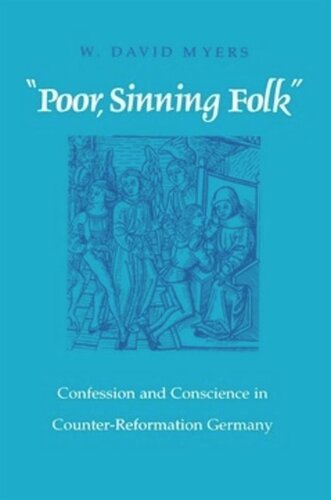

Most ebook files are in PDF format, so you can easily read them using various software such as Foxit Reader or directly on the Google Chrome browser.
Some ebook files are released by publishers in other formats such as .awz, .mobi, .epub, .fb2, etc. You may need to install specific software to read these formats on mobile/PC, such as Calibre.
Please read the tutorial at this link: https://ebookbell.com/faq
We offer FREE conversion to the popular formats you request; however, this may take some time. Therefore, right after payment, please email us, and we will try to provide the service as quickly as possible.
For some exceptional file formats or broken links (if any), please refrain from opening any disputes. Instead, email us first, and we will try to assist within a maximum of 6 hours.
EbookBell Team

5.0
100 reviewsIn "Poor, Sinning Folk," W. David Myers investigates the sixteenth-century fate of the medieval Christian sacrament of penance, the process of confessing to a priest in secret one's sins against God and other humans. In Pre-Reformation Germany, numerous layers of public ritual, expectation, and display surrounded the central secret act of confessing and conditioned its meaning. Less frequent and less private than the ritual familiar to modern Catholics, medieval penance was for most German-speaking Christians a seasonal event with social as well as spiritual ramifications for participants. Protestantism swept confession away from many German lands. Even where Catholicism survived and flourished, as in the lands comprising modern Bavaria, the sacrament of penance changed profoundly. The modern confessional booth was introduced, making the sacrament more prominent, more secure from scandal, and ultimately more private. This reform coincided with the efforts of secular rulers to fashion a more disciplined, obedient population. New religious orders, most notably the Society of Jesus in Bavaria, saw the frequent confession of lay people as a means to piety and spiritual discipline amidst the temptations of worldly affairs. By the middle of the seventeenth century, political and religious forces combined to forge the sacrament of penance into an effective instrument of spiritual discipline which would fashion the modern Catholic conscience and endure essentially unchanged into the late twentieth century.